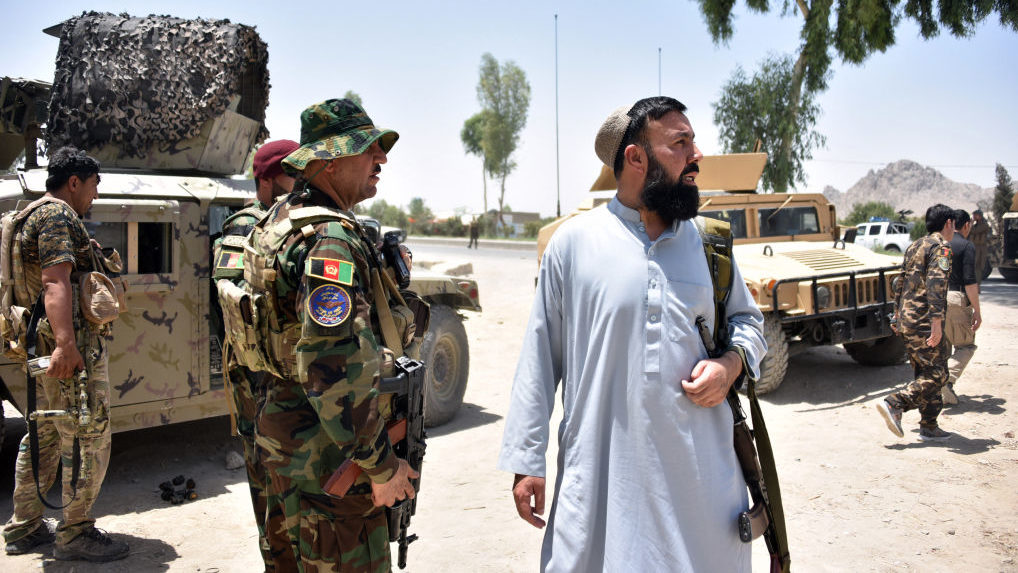Major Security Tests In and Around Afghanistan
Al Watan, Saudi Arabia, July 16
In the wake of the American withdrawal from Afghanistan, followed by the withdrawal of NATO forces, missile attacks against American forces stationed in Iraq and Syria increased with great intensity. According to a recent report published by the British newspaper The Guardian, Iraqi special forces have been chasing militants believed to be the remnants of ISIS in a triangle of land located between Kirkuk in the north, Baiji in the west, and Samarra in the south, a large area in central Iraq. According to the report, these militants are working to reorganize themselves and recruit others, in preparation for the relaunching of the so-called Islamic State in Iraq and Syria. There are several reasons for these developments, despite their different geographic locations. Three stand out. The first is the withdrawal of American and international forces from Afghanistan, following two decades in which they failed to rebuild the Afghan state. Extremist militias have gained the upper hand at the expense of state institutions. The second is that both ISIS and the Taliban have taken advantage of this political vacuum and have succeeded in growing their presence. The third is the psychological impact resulting from the Western withdrawal, which extremist organizations celebrated as the ultimate evidence that the American strategy in the region has failed, despite the asymmetry in material strength between the two sides. In both Iraq and Syria, despite the many differences in the two cases, there are many forces working to force the Americans out, including the remnants of ISIS, the Iraqi Popular Mobilization Forces, and the pro-Iranian groups in Syria, and each has its own goal. The psychological impact, coupled with the strategic goals of the local parties, suggests that we may witness a surge in violent terrorist activities in the region. Afghanistan is surrounded by several countries – including Pakistan, India, Tajikistan and Uzbekistan, in addition to parts of Iran – which are prime candidates for security disturbances, either along the Afghan borders or even within the country’s interior. In sum, the image emanating from the Taliban’s return to the fore as a victorious force that succeeded in defeating immense international powers, can motivate other organizations and groups to mimic the Taliban’s model by exacerbating their violence. The American withdrawal provided the United States with a way out of a major strategic and military dilemma. However, it puts Central Asia in a real predicament. Much like the Gulf States learned that they cannot rely on Washington to defend them, the Central Asian states are discovering that they must rely upon themselves for their survival. Even major powers such as China and Russia, which may view the American withdrawal from Afghanistan as a moral victory, are unlikely to step in and intervene in Afghanistan. One of the likely outcomes is that the Taliban’s forceful seizure of power will be met with local resistance, and it is likely that the country will enter a state of complete chaos. The first to benefit will be Al-Qaida and ISIS, which thrive in conditions of political upheaval and lawlessness. The ripple effects of a renewed Afghan civil war, if it becomes a reality, will not stop at Afghanistan’s borders. Some neighboring countries will be forced to intervene, whether they like it or not. In such a case, the country will turn into an arena for settling historical scores between neighboring countries, and an arena for gaining moral and political influence in the face of regional opponents. – Hassan Abu Talib (translated by Asaf Zilberfarb)


